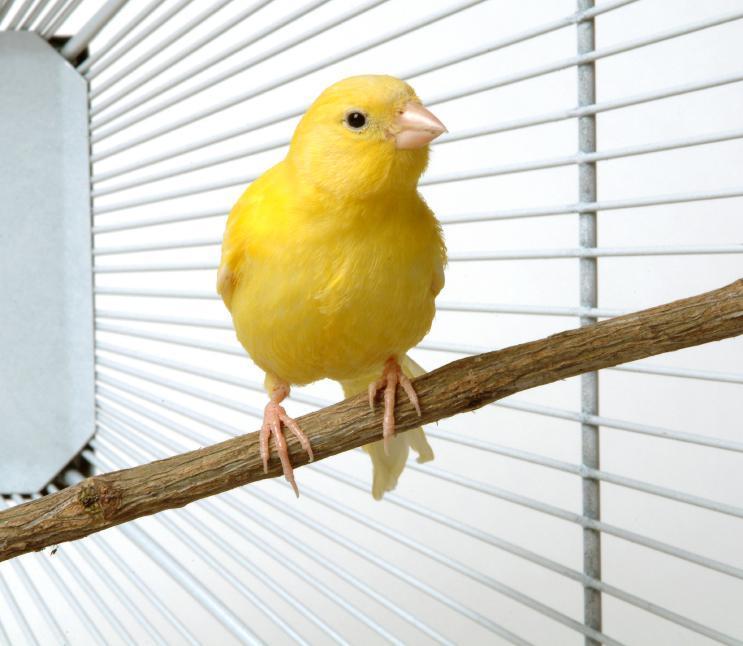Canary Lice - Prevention and Treatment


Many people opt for birds when it comes to having an animal at home. There are many species of birds that you can adopt as pets, and canaries stand out as among the most charismatic and likable.
Canaries are cheerful animals, and they are easy to look after. However, they are also at risk of various diseases and are especially susceptible to parasitic infections. This AnimalWised article will talk about the prevention and treatment of canary lice to help you provide the best care for your pet.
Red lice in canaries
It is common for canaries to be affected by lice. They are especially susceptible to parasitic infections caused by red lice, a parasite that feeds on the blood of mammals and other vertebrates, attacking the weakest birds first, starting with chicks.
It can be difficult to detect these parasites because their habits are nocturnal and they only appear at night. Continued vigilance is essential in detecting red lice as soon as possible, because the later the treatment is started, the harder it is to completely eradicate this parasite.

How to know if my canary has red lice
Detecting a parasitic infection caused by red lice is essential. Observe the cage and the canary's behavior during the night. There are various methods that will help you confirm the presence of this parasite:
- Inspect the cage during the night with a flashlight. Look out for any signs of stress in your canary and if it is trying to repeatedly scratch itself.
- Cover the cage with a white cloth overnight. The next morning you may see red spots on the cloth, and you may even be able to see a parasite attached to it.
- During the night you can also leave a small bowl of water with a few drops of vinegar in. The next morning you may find a parasite has drowned in it.
Another sign that can be observed in your canary is pale skin. This indicates the presence of hematophagous parasites, which consume blood.

How to treat canary lice
Red lice are very difficult to remove, especially if they are not detected in time, so a broad-spectrum antiparasitic is necessary; in this case, ivermectin. This is an active substance that can be applied to internal and external parasitic infections.
However, an overdose of this antiparasitic can cause neurological symptoms in canaries and can even cause death in some cases. It is therefore vital to not medicate your canary yourself. Your vet will tell you how to manage the antiparasitic medicine, including what dose should be used and how often to apply it.

How to prevent canary lice
To prevent your canary from being affected by lice and other external parasites it is important to take into account the following advice:
- Regularly clean and disinfect the cage and all your canary's accessories.
- Add apple vinegar to the water your bird bathes in to repel parasites; this will also brighten its plumage.
- Regularly apply an insecticide or acaricide. Your vet will inform you about what is the most suitable product.
- Monitor your canary's behavior. It is important to detect parasitic infections as early as possible.

This article is purely informative. AnimalWised does not have the authority to prescribe any veterinary treatment or create a diagnosis. We invite you to take your pet to the veterinarian if they are suffering from any condition or pain.
If you want to read similar articles to Canary Lice - Prevention and Treatment, we recommend you visit our Parasitic diseases category.










